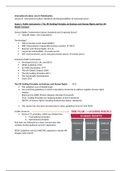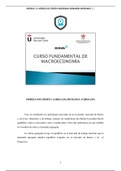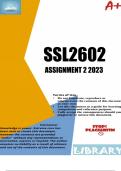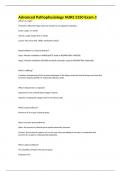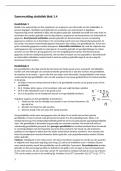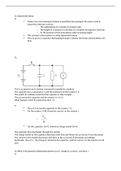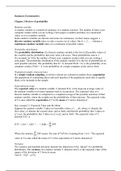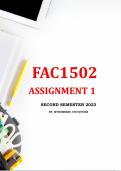International Labour Law & Globalization
Lecture 8 - International Labour Standards and Responsibilities of Corporate Actors
Scene 1: Public instruments I: The UN Guiding Principles on Business and Human Rights and the UN
Global Compact
Human Rights, Fundamental Labour Standards and Corporate Actors?
Typically states, not corporations
Terminology?
CSR (corporate social responsibility)
IRBC (international responsible business conduct OECD
Business and Human Rights U.N.
Corporate Sustainability private sector
ESG (environmental, social, and government issues) private sector
Voluntary Public Instruments
Developed by ILO, UN, and OECD
OECD Guidelines 1976
ILO MNE Declaration 1977
The UN Global Compact 2000
The UN Guiding Principles 2011
The Sustainable Development
Goals 2015
The UN Guiding Principles on Business and Human Rights 2011
This adoption was a breakthrough
Very practical guidelines on what corporations should do to address negative human rights
impacts
- Based on the 2008: Protect, Respect, Remedy Framework
- 2011: Guiding Principles for Implementation of this Framework
- UNGPs: all human rights (including fundamental labour standards)
This system has also been incorporated in other guidelines from ILO and OECD
3 pillar structure
Exists of 31 principles, which are divided into:
1. Foundational principles
2. Operational principles
And each are followed by a short commentary that
contains further guidance on their application
OECD Guidelines and ILO MNE DEC updated to include HR
Chapter (2011/2017)
, How should countries use the UNGPs to respect fundamental labour standards?
Pillar II: Corporate Responsibility to Respect Human Rights
Foundational Principle 12:
Respect inter alia the 1998 Declaration
o No child labour or forced labour takes place in relation to your business activities
Operational Principles
16: Explicit policy commitment
o Public
17: HR and Due diligence process (parameters/scope)
o Measure impact of your activities
18/19: Impact assessments (components)
(+ commentary on how to do this)
Goal is to avoid causing or contributing to negative Human Rights impact if there are problems
you will have to prevent or mitigate them to the best of your abilities
Goal DD:
Avoid
(1) causing adverse HR impact
OR
(2) contributing to adverse HR impact
AND
(3) Seek to prevent or mitigate adverse HR impact directly linked to their operations
Very important document because its practical, widely supported, and reasonably easy to
understand. Also, it doesn’t impose the same responsibilities on companies as it does on states, but
does make it clear that companies have certain responsibilities.
The UN Global Compact 2000
- initiative by former UN secretary general Kofi Annan
Mission:
- “the world’s largest corporate sustainability initiative” developed as a leadership platform
for development, implementation and disclosure of sustainable business practices
- Closely aligned to sustainable development goals (to be discussed later)
- Do business responsibly by aligning strategies and operations with ten principles on human
rights, labour, environment and anti-corruption;
- Take strategic actions to advance broader societal goals, such as the UN Sustainable
Development Goals, with an emphasis on collaboration and innovation.
Ten principles in the areas of human rights, labour, the environment and anti-corruption derived
from:
The Universal Declaration of Human Rights
The International Labour Organization's Declaration on Fundamental Principles and Rights at
Work
The Rio Declaration on Environment and Development
The United Nations Convention Against Corruption
Labour standards 3-6 echo quite literally the fundamental labour standards
Lecture 8 - International Labour Standards and Responsibilities of Corporate Actors
Scene 1: Public instruments I: The UN Guiding Principles on Business and Human Rights and the UN
Global Compact
Human Rights, Fundamental Labour Standards and Corporate Actors?
Typically states, not corporations
Terminology?
CSR (corporate social responsibility)
IRBC (international responsible business conduct OECD
Business and Human Rights U.N.
Corporate Sustainability private sector
ESG (environmental, social, and government issues) private sector
Voluntary Public Instruments
Developed by ILO, UN, and OECD
OECD Guidelines 1976
ILO MNE Declaration 1977
The UN Global Compact 2000
The UN Guiding Principles 2011
The Sustainable Development
Goals 2015
The UN Guiding Principles on Business and Human Rights 2011
This adoption was a breakthrough
Very practical guidelines on what corporations should do to address negative human rights
impacts
- Based on the 2008: Protect, Respect, Remedy Framework
- 2011: Guiding Principles for Implementation of this Framework
- UNGPs: all human rights (including fundamental labour standards)
This system has also been incorporated in other guidelines from ILO and OECD
3 pillar structure
Exists of 31 principles, which are divided into:
1. Foundational principles
2. Operational principles
And each are followed by a short commentary that
contains further guidance on their application
OECD Guidelines and ILO MNE DEC updated to include HR
Chapter (2011/2017)
, How should countries use the UNGPs to respect fundamental labour standards?
Pillar II: Corporate Responsibility to Respect Human Rights
Foundational Principle 12:
Respect inter alia the 1998 Declaration
o No child labour or forced labour takes place in relation to your business activities
Operational Principles
16: Explicit policy commitment
o Public
17: HR and Due diligence process (parameters/scope)
o Measure impact of your activities
18/19: Impact assessments (components)
(+ commentary on how to do this)
Goal is to avoid causing or contributing to negative Human Rights impact if there are problems
you will have to prevent or mitigate them to the best of your abilities
Goal DD:
Avoid
(1) causing adverse HR impact
OR
(2) contributing to adverse HR impact
AND
(3) Seek to prevent or mitigate adverse HR impact directly linked to their operations
Very important document because its practical, widely supported, and reasonably easy to
understand. Also, it doesn’t impose the same responsibilities on companies as it does on states, but
does make it clear that companies have certain responsibilities.
The UN Global Compact 2000
- initiative by former UN secretary general Kofi Annan
Mission:
- “the world’s largest corporate sustainability initiative” developed as a leadership platform
for development, implementation and disclosure of sustainable business practices
- Closely aligned to sustainable development goals (to be discussed later)
- Do business responsibly by aligning strategies and operations with ten principles on human
rights, labour, environment and anti-corruption;
- Take strategic actions to advance broader societal goals, such as the UN Sustainable
Development Goals, with an emphasis on collaboration and innovation.
Ten principles in the areas of human rights, labour, the environment and anti-corruption derived
from:
The Universal Declaration of Human Rights
The International Labour Organization's Declaration on Fundamental Principles and Rights at
Work
The Rio Declaration on Environment and Development
The United Nations Convention Against Corruption
Labour standards 3-6 echo quite literally the fundamental labour standards

